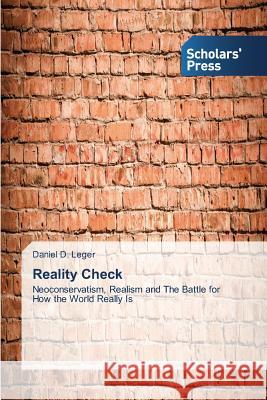Reality Check » książka
Reality Check
ISBN-13: 9783639703252 / Angielski / Miękka / 2014 / 336 str.
This book examines the public policy debates of the late 1960s to today involving arms control, detente and the War in Iraq in an effort to explain the essential strategic, political, and moral ingredients of a neoconservative foreign policy. In examining these policy debates, I take the perspective not of an historian but that of a political philosopher. I argue that there are two distinct lines of thought running through neoconservatism, the one strategic and the other political and moral. The two lines are married by Irving Kristol, Norman Podhoretz and others into a unified approach to foreign policy. Taken together with a philosophical and epistemological foundation at variance with the orthodoxy of its academic counterparts, neoconservatism is rightly understood to belong alongside modern realism, neorealism and neoliberalism as a distinct tradition in the study of international relations. On matters ranging from the importance of morality in foreign policy to the relevance of common sense as the standard for judging the effectiveness of public policy, the gulf between neoconservatism and the more mainstream traditions is very wide."
This book examines the public policy debates of the late 1960s to today involving arms control, détente and the War in Iraq in an effort to explain the essential strategic, political, and moral ingredients of a neoconservative foreign policy. In examining these policy debates, I take the perspective not of an historian but that of a political philosopher. I argue that there are two distinct lines of thought running through neoconservatism, the one strategic and the other political and moral. The two lines are married by Irving Kristol, Norman Podhoretz and others into a unified approach to foreign policy. Taken together with a philosophical and epistemological foundation at variance with the orthodoxy of its academic counterparts, neoconservatism is rightly understood to belong alongside modern realism, neorealism and neoliberalism as a distinct tradition in the study of international relations. On matters ranging from the importance of morality in foreign policy to the relevance of common sense as the standard for judging the effectiveness of public policy, the gulf between neoconservatism and the more mainstream traditions is very wide.











